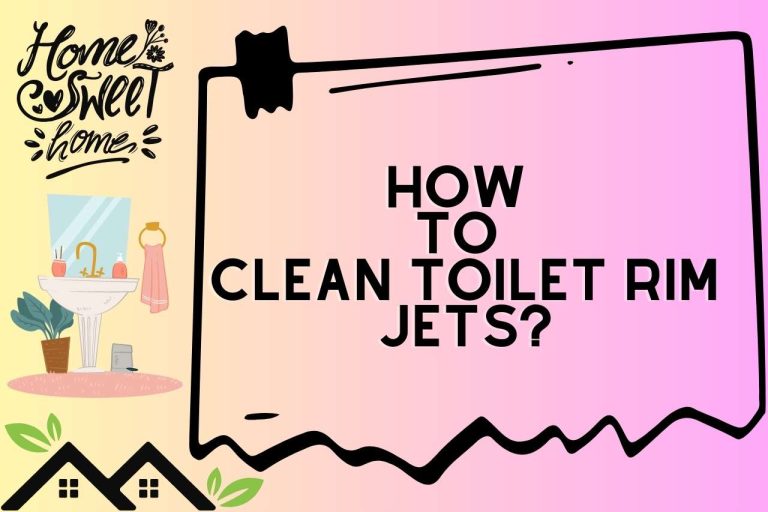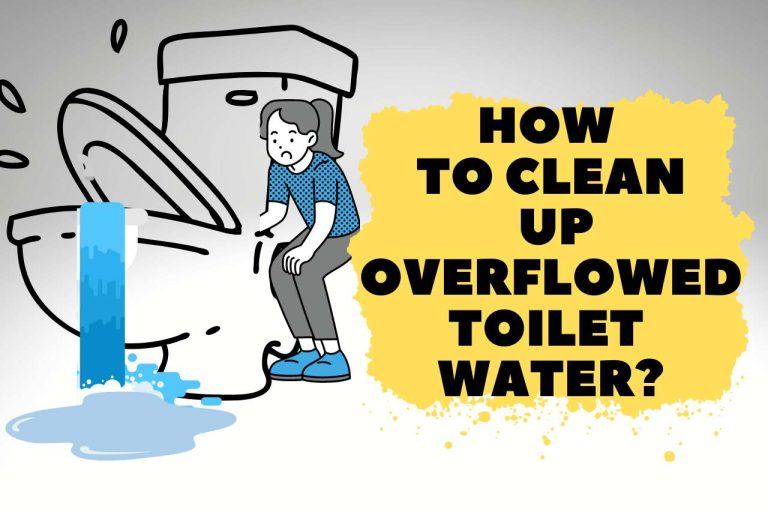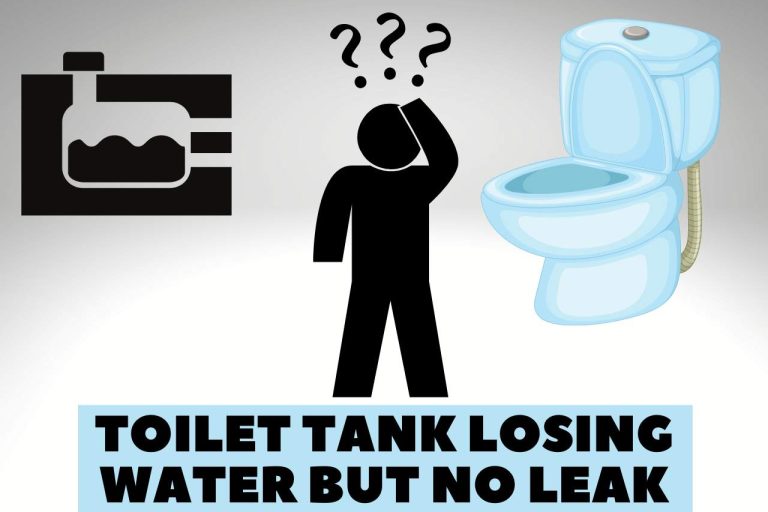The Toilet Flushes, But Waste Comes Back: Causes and Solutions
Do you have trouble flushing the waste in your toilet commode? If yes, there are several reasons for waste returning despite the flushing. When you discover your toilet commode isn’t doing its job, the first thing that will come to your head is calling a plumber. However, what else can you do if a plumber isn’t available? This article covers a few DIY remedies to fix your toilet and other questions, including why waste keeps returning after flushing, how to improve the flush flow, the acids available to unclog a toilet, and many other facts. Remember that this can happen anywhere, including in a public or hotel bathroom. After all, you certainly wouldn’t want to cause discomfort to anyone using the toilet after you. Read the article and learn how to fix “Toilet Flushes, But Waste Comes Back”
Why Does My Toilet Flush But Not Remove Waste?
After flushing, you don’t usually check the commode to confirm if it is clean. However, there can be times when flushing will not remove waste and instead remain in the commode. It might seem disgusting to you and anyone who uses the washroom next. So why does this happen? Let’s look at a few reasons.
The most common reason for dysfunctional commodes is clogged or broken sewage pipes. This happens mainly with old toilets used for a long time. We usually don’t pay attention to things unless they start causing trouble or breaking down; your toilet sewage pipe is one such thing. If we ensure to get it cleaned or unclogged at least once a month, there will be fewer problems.
Another reason for a dysfunctional toilet is discarding flushable wipes, toilet paper, and sanitary napkins. This is a common reason among European countries. Though it may seem convenient to you, it can lead to many inconveniences in the future; hence, refrain from flushing the above items in the commode.
This may sound surprising, but do you know that drain cleaners containing sulfuric acid can worsen the problem rather than solve it? Hence, avoid adding drain cleaners for unclogging, especially if the sewage pipes are cast iron.
What To Do When The Toilet Flushes But Waste Comes Back?
The easiest thing to do is to call the nearest plumber and get it fixed. However, if that is not an option in your area, here are a few things you can do to fix a clogged toilet.
You can prepare a drain cleaner on your own because many available drain cleaners contain sulfuric acid. Hence, better prepare your drain cleaner at home. You will need a few items, including salt, lemon juice, baking soda, dish soap, vinegar, hot water, borax, cream of tartar, and a wire coat hanger. Check on the internet or watch a YouTube video to learn how to prepare the solution and the required quantities to make your natural drain cleaner.
Another way to unclog a blocked toilet is to use a plunger or a sewer snake. Many do not recommend using a plunger since it is not effective if the clog is somewhere more profound than expected. However, in that case, you can use a power snake, a type of sewer snake. A power snake is suitable for more challenging clogs. It uses a motor to approach the clog work throughout the process.
If you are thinking of hydro-jetting, you will need a plumber to do that as it is a more complicated task to do it yourself.
Consider consulting a plumber if none of the above remedies fix the problem.
How Can I Improve My Toilet Flush?
Now that you know the reasons for a clogged toilet, the best way is to avoid the ways that lead to a clogged toilet. However, a slow flush can also be a reason for the waste to remain or come back after flushing. Let’s look at a few ways to improve the toilet flush and avoid the hassle of flushing many times.
Apart from a clogged toilet that slows down the water pressure, there are a few other ways to improve the toilet flush.
It is better to check on the water level of the toilet tank before you flush. It may seem daunting; however, it is better than leaving your waste and discomforting the others. Water should be filled up to the overflow tube for good water pressure. You can lift the toilet lid and check if the water is filled to the maximum level. If not, increase the water level by adjusting the float.
If you have an old bathroom system, then your toilet tank will have a ball float. Lift the ball float by turning the screw above the fill valve. This should increase the water pressure in the tank.
Another way to improve the water flow is by cleaning and maintaining the inner walls of the water tank. The water inside the tank can contain calcium, mineral deposits, grime, and other impurities that will build up with time and impair the integral components inside the tank.
Ensure to clean and check for debris deposits inside the flush holes and siphon jets, as these release water into the commode.

What Is A Home Remedy For A Slow-Flushing Toilet?
As discussed, a slow-flushing toilet is due to a clogged pipeline or a drain. However, if the clog can be removed, you can try a few home remedies to improve a slow-flushing toilet.
Interestingly, the dish soap you use to wash and clean the dirty pots and pans in your kitchen can be used to loosen the deposits of drain buildup within the walls of the pipes. Additionally, use hot water to wash off the loose deposits. Leave the dish soap for at least 30 minutes after pouring it into the drain for better results.
Remember to clean the siphon jets or the jet holes at the end of the day. By cleaning it daily, you can prevent it from getting clogged by minerals and other deposits.
Many people recommend pouring boiling water into the commode. However, this is not advisable because hot water can damage the pipelines, especially plastic ones. It is better to use mild hot water even when washing off the dish soap used to loosen the deposits of impurities in the interior of the pipes for durability.
What Acid Is Used To Unclog A Toilet?
The easiest way to unclog a toilet drain is to add an acid.
Sulfuric acid is the common acid many homeowners use to unclog drains. Many drain cleaners contain sulfuric acid, which is thought to aggravate the issue rather than remedying it. Yet, the acid could work better if you add it directly into the clogged drain. The acid easily converts organic materials like debris, calcium, and mineral deposits into a water-soluble form to be flushed away. Use the acid cautiously, as it can be harmful if it comes in contact with your skin. Remember to cover your hands or wear gloves and a mask when handling the solution.
Additionally, there are other acids plumbers commonly use as alternatives to sulfuric acid. Hydrochloric acid is more suitable if the clogs are due to hair, scum, body oils, soap chemicals, and other materials. Hydrochloric acid will easily dissolve these materials. Similar to sulfuric acid, hydrochloric acid should be used carefully.
Phosphoric acid is less effective than sulfuric and hydrochloric acids. Plumbers mostly use it to unclog small blockages that dissolve easily. Since it is less effective to clear tighter clogs, it is less harmful and safer than the other two acids.
When Do You Need To Hire A Plumber?
We have already learned a few home remedies to unclog blocked toilet drains. However, there are situations where you might have to seek professional help. Plumbers are professionals who have years of experience and knowledge in the area. It is always better to seek their service with a clogged bathroom.
If none of the home remedies work, it is time to consult a professional plumber to fix the issue. Sometimes, the home remedies you resort to can harm the entire sewage system, especially if you use acids and chemicals like bleaching powder.
These chemicals might even cost you to replace a complete toilet. You never know if the issue is a clogged drain or something worse. A plumber will have all the necessary equipment and tools to examine the problem without harming the drainage system.
Therefore, it is best to stick to home remedies only if you cannot get in touch with a plumber or if you cannot afford it.
Suppose you do not possess the necessary knowledge or skills to handle a clogged drain; in that case, it is better to avoid resorting to home remedies, especially if you do not want to replace an entire drainage system, which can cost you a fortune nowadays.
Here’s An Interesting Video To Watch,
VIDEO CREDITS: Fix This House YouTube Channel
Continue Exploring: More Articles to Keep You Engaged






